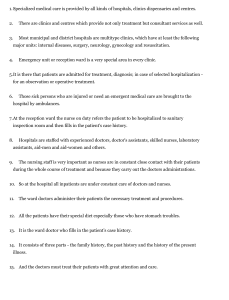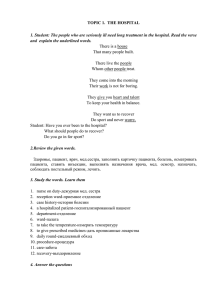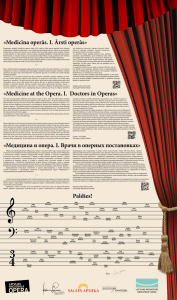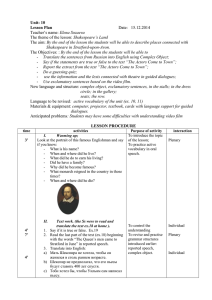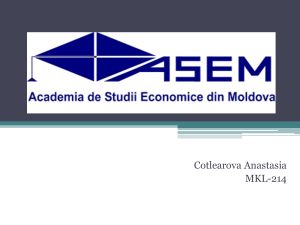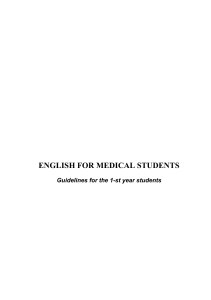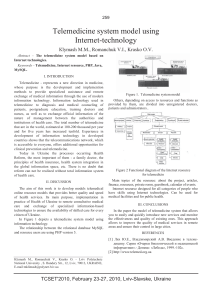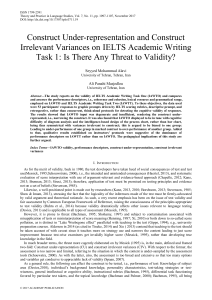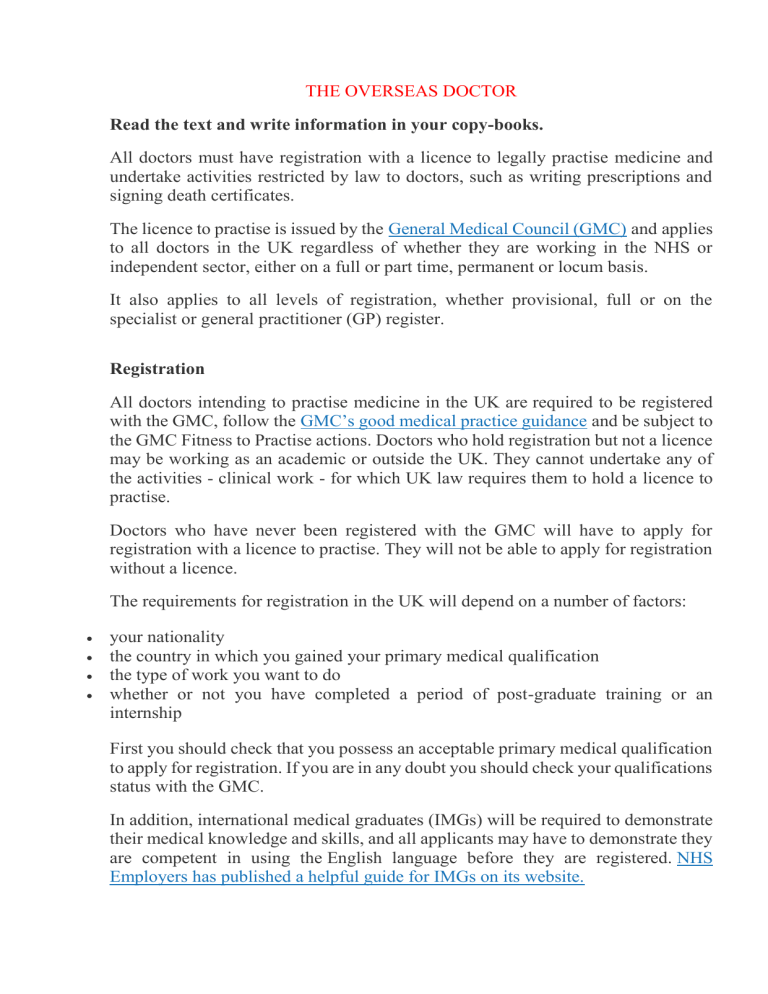
THE OVERSEAS DOCTOR Read the text and write information in your copy-books. All doctors must have registration with a licence to legally practise medicine and undertake activities restricted by law to doctors, such as writing prescriptions and signing death certificates. The licence to practise is issued by the General Medical Council (GMC) and applies to all doctors in the UK regardless of whether they are working in the NHS or independent sector, either on a full or part time, permanent or locum basis. It also applies to all levels of registration, whether provisional, full or on the specialist or general practitioner (GP) register. Registration All doctors intending to practise medicine in the UK are required to be registered with the GMC, follow the GMC’s good medical practice guidance and be subject to the GMC Fitness to Practise actions. Doctors who hold registration but not a licence may be working as an academic or outside the UK. They cannot undertake any of the activities - clinical work - for which UK law requires them to hold a licence to practise. Doctors who have never been registered with the GMC will have to apply for registration with a licence to practise. They will not be able to apply for registration without a licence. The requirements for registration in the UK will depend on a number of factors: • • • • your nationality the country in which you gained your primary medical qualification the type of work you want to do whether or not you have completed a period of post-graduate training or an internship First you should check that you possess an acceptable primary medical qualification to apply for registration. If you are in any doubt you should check your qualifications status with the GMC. In addition, international medical graduates (IMGs) will be required to demonstrate their medical knowledge and skills, and all applicants may have to demonstrate they are competent in using the English language before they are registered. NHS Employers has published a helpful guide for IMGs on its website. Being registered with the GMC does not guarantee that you will find employment within the UK. Non-European Economic Area nationals If you are not a UK/EEA national you will also need to meet the requirements of UK Visas and Immigration regulations to gain the right to enter and work in UK. Foundation programme All UK medical graduates are required to undertake a two-year Foundation Programme immediately following graduation. The Foundation Programme forms the bridge between medical school and specialist/general practice training. Trainees will have the opportunity to gain experience in a series of placements in a variety of specialties and healthcare settings. Once doctors have completed the Foundation Programme, they may apply for a specialty or general practice training programme. If you have completed an internship year as part of your degree and are awarded full GMC registration, then you will need to think about entering the foundation programme via a locum post. Further details are available on the Medical and Dental Recruitment website. Types of registration Provisional registration Provisional registration (alongside a licence to practise) only allows newly qualified doctors to undertake an approved Foundation Year 1 post. The law does not allow provisionally registered doctors to work in any other type of post. On successful completion of Foundation Year 1, you will be able to apply for full GMC registration. Provisional registration is available to doctors with the following nationality, rights and qualifications: • • UK medical graduates who have completed their medical degree at a UK University recognised in the Medical Act 1983 International medical graduates who have an acceptable primary medical qualification and who have passed the PLAB test but who have not completed an internship • • • Nationals from the EEA, Switzerland and other countries with EC rights who qualified outside of the EEA and Switzerland Nationals from the EEA, Switzerland and doctors who have EC rights who qualified at EEA or Swiss medical schools Doctors who have qualified in an EEA member state can apply to do their practical training (internship) in the UK if the practical training counts towards a medical degree which requires this for compliance with Directive 2005/36/EC Full registration Full registration enables doctors to work in any form of professional medical practice in the UK, provided they hold a licence to practise. Doctors must, however, also hold specialist registration to take up a consultant post (other than a locum consultant post); and those wishing to work as GPs must be on the GP register. Doctors qualifying from outside the UK may be eligible to apply directly for full registration if they hold an acceptable primary medical qualification and have completed a period of postgraduate clinical experience (internship). A doctor will need to provide documentary evidence to support their application. Only original documents can be accepted. To complete the process, all doctors must visit the GMC in person to undergo a pre-registration identity check. A photograph of the doctor will be taken and this will be made available to employers so they can be assured of the doctor's identity. UK graduates and IMGs who are new to full registration and taking up a new job, or restoring their names to the register after a prolonged absence from practice, are required to work within an approved practice setting (APS) as assessed by the GMC as suitable for doctors new to full registration. The GMC recommends that EEA graduates ensure that they also work in an APS when they first take up employment in the UK under full registration. Most NHS employers will have approved practice setting status. The purpose of the APS system is to provide public protection by requiring doctors new, or returning, to full registration in the UK to work within a system with appropriate supervision and appraisal arrangements or assessments. Further information on APS can be found on the GMC website. Specialist registration All consultants (other than a locum consultant appointment) must be on the specialist register of the General Medical Council (GMC). To be eligible to apply for specialist registration with the GMC, doctors must have successfully completed a GMCapproved training programme and been granted one of the following certificates: • Certificate of Completion of Training (CCT) • Certificate confirming Eligibility for Specialist Registration (CESR) Doctors who have not completed a full GMC-approved training programme and wish to have their training, qualifications and experience assessed for eligibility for entry onto the specialist register must make an application under The General and Specialist Medical Practice Order for a CESR. It is not possible to hold specialist registration without also holding full registration. GP registration Since 1 April 2006, all doctors working in general practice in the NHS in the UK (other than doctors in training such as GP registrars) are required to be on the GP Register. This requirement extends to locums. If you have not completed the UK GP Certificate of Completion of Training programme you will need to apply for a Certificate of Eligibility for General Practice Registration (CEGPR), which will then enable you to be entered on the GP Register. English language proficiency Overseas doctors applying for registration must satisfy the GMC that they have the necessary knowledge of English. This may be demonstrated though the International Language Test System (IELTS) or the Occupational English Test (OET) IELTS For the IELTS, candidates will be required to prove that they meet the GMC's requirements in the academic version of the International English Language Testing System (IELTS) test which has four areas: • • • • speaking listening reading writing Prospective registrants for the GMC’s register must score 7.5 or more overall if using the IELTS. Further details about the test can be found on the IELTS website OET The OET provides an alternative to the IELTS and was introduced on 8 Feb 2018. Further details about the OET are available on the GMC website. The OET is an international English language test designed specifically for the healthcare sector. It assesses the language communication skills of healthcare professionals who wish to register and practise in an English-speaking environment. It is specifically designed for healthcare professions, and in the UK is an option for doctors, nurses and midwives. A full list of professional regulatory bodies who accept the test can be found on the OET website For the OET, candidates will need to achieve a Level B in each skill (listening, reading, writing and speaking) to meet the GMC’s requirements. The test is designed for healthcare professionals with an emphasis on real situations medical staff might encounter. Further details about the test can be found on the OET website Professional and Linguistic Assessment Board (PLAB) The GMC uses the PLAB test to ensure that international doctors have the basic medical competence and communication skills to practise in the UK. Doctors wishing to take the PLAB test must have already successfully completed the International English Language Testing System (IELTS) or Occupational English Test (OET). The first part of the PLAB test can be taken at a number of test centres overseas, but the second part must be taken in the UK. Further details about the PLAB test, including dates, test centres and costs, can be obtained from the GMC by visiting their website.
